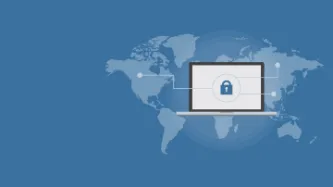Advanced Search
Content Type: News & Analysis
News emerged today that the new National Crime Agency will be completely exempt from Freedom of Information laws, creating a ‘cloak of secrecy’ around the organization.
The National Crime Agency (NCA), the government’s proposed successor to the Serious and Organised Crime Agency (SOCA), will target organized crime, fraud, child exploitation and smuggling. Described in the media as an ‘FBI-style’ intelligence agency, the NCA is proposed to become fully operational in December 2013.
But…
Content Type: News & Analysis
Last evening (in India, that is) we got some very good news. Earlier, an online news item in a major newsmagazine described a forthcoming report from the Parliamentary Standing Committee on Finance, a cross-party body created to study Bills being presented for consideration in Parliament, as having expressed its reservations about the NIAI Bill, that they would recommend recasting it. The NIAI Bill seeks to set up a National Information Authority, whose job is to take over the functioning of…
Content Type: News & Analysis
A widely-leaked version of the first legislative proposal for a General Data Protection Regulation is making its way through Brussels and beyond. The purpose of this 'Regulation' is to provide a new tool for harmonising the protection of personal data across the European Union, and one that takes into consideration the current legislative and technological environment. The key point is that Europe's rules on privacy are often taken as an example to the world -- and provide a rare…
Content Type: News & Analysis
It is common knowledge that surveillance technologies keep us safe. These technologies can uncover where a would-be bomber has fled or reveal that a suspect is planning an attack on the New York City subways. Such successes, and the belief - and business - in them has fueled a vast expansion of CCTV, wiretapping and data mining since 9/11, the Madrid bombings in 2004 and the attacks on London's public transport system in 2005. But this common knowledge is based, at best, on shaky evidence. In…
Content Type: News & Analysis
Gradually and almost imperceptibly, we have immersed ourselves in a global hypermedia environment. This environment increasingly contains everything we do: we work, we play, we organize within it. Our lives have been, in essence, turned inside out and dispersed in endless ethereal clouds - multi-verses - that follow us around in extra dimensionality. “Big Data” refers to the endless digital grains of sand we produce as we move, think and act. Internet Service Providers, web hosting companies,…
Content Type: News & Analysis
Last year, Index on Censorship published an interview with Google’s chief legal officer and senior vice president David Drummond. The company was still reeling from the aftermath of the news that an attack had been launched on Gmail from China. Drummond proposed that free speech needed to be part of the international agenda at multilateral and bilateral trade discussions, just like piracy. 'Western governments whose economies certainly benefit from the internet sector should make this happen,'…
Content Type: News & Analysis
This is a Guest Blog from Mathias Vermeulen is a Research Fellow at the European University Institute and the VUB's Centre for Law, Science and Technology Studies.
In 1999, a young technology company called Google was brainstorming a mission statement for the corporation. A series of core principles were written on a blackboard, until one employee summarized them as ‘Don’t be evil’. The slogan became a rallying cry for Google’s fans, and a way to distinguish it from other companies, but…
Content Type: Press release
At 12.45pm today, Wikileaks released hundreds of brochures, presentations, marketing videos and technical specifications exposing the inner workings of the international trade in surveillance technologies. Many of these documents were gathered by PI’s Eric King while undercover at industry-only conferences and trade shows in London, Paris and Washington DC.
Mr King joined Julian Assange, security researcher Jacob Appelbaum, Stefania Maurizi of Italian news weekly L’Espresso, Jean-Marc Manach…
Content Type: News & Analysis
Facebook's new "Download your Information" feature reveals a radically different interpretation of transparency to one that the rest of us in Europe might hold. The feature may be a promising start, but the company still clearly has difficulty understanding the requirements of European Data Protection law. The feature provides only a fraction of the personal information held by Facebook and is thus still in violation of law.
The company may escape a prosecution under the UK Trades Description…
Content Type: News & Analysis
Prime Minister David Cameron may not be quite the “pitiless blank-eyed hell wraith” Charlie Brooker portrayed in yesterday’s Guardian, but he does have some pretty frightening ideas about the Internet. This morning the Prime Minister announced, at a meeting with the Christian charity Mother’s Union, that four of the UK’s biggest ISPs will henceforth require users to opt in if they want to view pornographic material – thereby creating a commercially-owned and controlled database of…
Content Type: News & Analysis
Independent security researcher Trevor Eckhart revealed yesterday that a recent software update to some HTC smartphones has accidentally given third party applications access to huge amounts of private data, including call logs, geolocation history, SMS data and a whole lot more.
The update surreptitiously installs a suite of applications logging users' interactions with their devices. When a device is first switched on, the user ostensibly has the option not to allow HTC to…
Content Type: Press release
Privacy International today published documentation that establishes a deliberate cover-up by the UK Information Commissioner’s Office (ICO) of a failure to uphold its responsibility to enforce the Data Protection Act.
A request under the Freedom of Information Act by PI and No-CCTV has revealed a conflict of interest in the ICO’s mandate and a fundamental failure of process within the Office. The material disclosed proves that the ICO conspired to delay the FOIA request, and attempted to…
Content Type: News & Analysis
The second 2011 meeting of the APEC Privacy Subgroup took place in San Francisco in mid September, and finalised the package of documents that comprise the Cross Border Privacy Rules (CBPR) system. Endorsed by the parent Electronic Commerce Steering Group (ECSG), these will now go forward for ratification by Ministers in Hawaii in November, and subsequent implementation. The Subgroup’s 2012 Work Plan envisages establishment of the Joint Oversight Panel (JoP), commencement of…
Content Type: News & Analysis
On the 2nd of August 2011 the Hamburg Commissioner for Data Protection and Freedom of Information has called on Facebook to delete the feature on the social networking site that automatically recognizes facial features and "tags" users when others upload photos of them. According to the local German data protection authority the feature is a violation of local and European data protection laws, and Facebook should adapt the feature to European data protection law or suspend the use of the…
Content Type: News & Analysis
Few understand why we focus on refugee privacy. Funders don’t understand it so don’t fund it; the public see the plight of refugees as seen on TV, not as a privacy issue; and often times the international community does everything it can to increase scrutiny of refugees. In this blog, I highlight the privacy issues facing refugees and how these issues can jeopardize refugees’ safety as much as any of the environmental, social, or political risks refugees encounter.
Refugees are amongst…
Content Type: News & Analysis
At the moment there is much anger about a UK Border Official who, according to the BBC, relaxed "identity checks on non-EU nationals" over the summer. This 'relaxation' then was claimed to have placed the UK at risk because names of visitors were not checked against 'watchlists'. This news is unsurprising in some respects, and quite shocking in others.
The controversy centres on the call to temporarily suspend checking the e-passports of individuals from outside of the EU…
Content Type: News & Analysis
Other human rights organisations often ask us what they should to when it comes to their infosec needs. Should they run their own mail server, or trust Gmail? Should they merge their calendars by email (!), a local server, or use some cloud solution?
We honestly don't know what to tell them. In fact, we are unsure of what we ourselves should be doing. We know that there are risks of keeping things local (e.g. lack of redundancy), and there are risks of data being stored…
Content Type: News & Analysis
PI just received a response from Secretary General Thorbjørn Jagland of the Council of Europe (CoE) stating that the CoE is refusing to start an investigation on the collection and storage of citizens biometric data by member states. On 31 March an international alliance of organisations and individuals lodged a petition calling on him to start such an indepth survey under Article 52 of the European Convention on Human Rights (ECHR).
In his answer, received this week, Secretary…
Content Type: News & Analysis
An international alliance of organisations and individuals from 27 countries has lodged a petition calling on the Council of Europe to start an indepth survey on the collection and storage of biometric data by member states.
European governments are increasingly demanding storage of biometric data (fingerprints and facial scans) from individuals. These include storage on contactless 'RFID' chips in passports and/or ID cards. Some are going even further by implementing…
Content Type: News & Analysis
2011 is supposed to be the year that the APEC pathfinder projects on Cross Border Privacy Rules (CBPR) deliver a functional system for businesses to be certified for transfer of personal information between participating APEC economies.
After the last round of APEC privacy meetings in Washington DC on 1-3 March, this prospect is looking increasingly remote. Even the basic set of documentation and processes required for the process of self-certification and assessment of businesses has yet to…
Content Type: News & Analysis
Skype has consistently assured that it protects its users and their communications. Having reviewed the company's technology and policies we have grounds for concern about Skype's overall level of security, and we believe there are a number of questions to which the company must respond. Skype's misleading security assurances continue to expose users around the world to unnecessary and dangerous risk. It's time for Skype to own up to the reality of its security and to take a leadership…
Content Type: Press release
Privacy International’s Director-General Simon Davies has today written to Prime Minister David Cameron and Creativity Software CEO Richard Lee following revelations that Kingston-based Creativity sold a location-tracking system to Iran.
Mr Davies expressed his disappointment that the Coalition has taken no steps whatsoever to stop the export from Britain of surveillance technology to repressive regimes in the Middle East and North Africa, where it is used as a tool of political control…
Content Type: News & Analysis
Nigel Waters has previously represented Privacy International at APEC Data Privacy Subgroup meetings, on one occasion with PI having official guest status, otherwise indirectly through membership of the Australian delegation. On this occasion, expenses were paid by USAid for participation in the technical assistance seminar, and this allowed attendance at the other meetings.
Cross border privacy rules
As a reminder, or for newcomers, the cross border privacy rules (CBPR) system is one…
Content Type: News & Analysis
Not since the 1990s has the internet been so exciting. With its use by political activists and journalists around the world, we can now again entertain the discussions that the internet brings freedom. Digital data traverses routers with little regard to national boundaries and so traditional constraints not longer apply. So it is no surprise that protestors on the streets of Tehran or Cairo are using the internet to organise. We like to believe in the freedom of the internet again, after…
Content Type: News & Analysis
For the past couple of months we have been discussing with Google their transparency plans regarding governments accessing data held by Google. Last week Google released initial data on how many requests for data were coming from which governments.
We congratulate Google on this first step, and we believe that by seeking answers to some additional questions, greater clarity may yet emerge. Of course we have many more questions. We hope that this is the first step in an ongoing dialogue with…
Content Type: News & Analysis
Last week the German Federal Constitutional Court overturned a law on the retention of telecommunications data for law enforcement purposes, stating that it posed a "grave intrusion" to personal privacy and must be revised. In their ruling the judges found that the law stands in contradiction to the basic right of private correspondence and does not protect the principle of proportionality, as it fails to balance the need to provide security with the right to privacy. All data on telephone…
Content Type: News & Analysis
Privacy International and EPIC praised a vote today in the European Parliament today that rejected the transfer of finacial records to the United States under an interim agreement. A resolution to reject the deal passed 378-16, with 31 abstentions. Members of the parliament stated the proposed agreement lacked adequate privacy safeguards, and was a disproportionat response to US concerns about terrorism that also lacked reciprocity.
Simon Davies, Director General of Privacy International…
Content Type: News & Analysis
The Active Millimeter Wave body scanners that airport security officials plan to use in greater numbers after a failed attempt to explode a bomb in a plane over Detroit raise troubling questions about passenger privacy, and ultimately the technology’s utility as a security measure.
While Privacy International supports the adoption of measures that will genuinely protect the security of passengers, we are deeply concerned that airport and security authorities increasingly deploy fashionable and…
Content Type: News & Analysis
Following an extensive campaign by Privacy International and our network of groups in the United Kingdom, the UK Government has decided to abandon its current plans for data sharing legislation.
The government has announced that it will immediately abandon clause 152 of the Coroners and Justice Bill, following on from an open letter that Privacy International sent to the Justice Secretary earlier this week.
As the Sunday Telegraph observed, the eloquence of the letter together with the…
Content Type: News & Analysis
At the request of the Civil Initiative on Internet Policy, a Kyrgyz public foundation, Privacy International participated in an international conference on Internet and Law in Bishkek, Kyrgyzstan.
The event was organized in response to proposals for a new data retention law and content regulation of the Internet and was attended by government officials, journalists, legal experts, and representatives of the telecommunications industry.
Kyrgyzstan adopted a data protection law only in April…

























